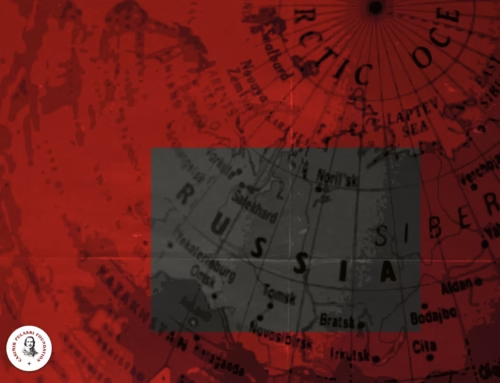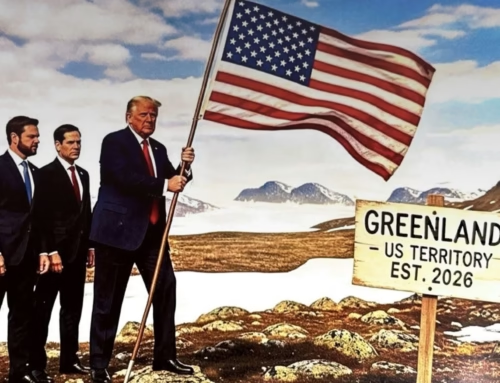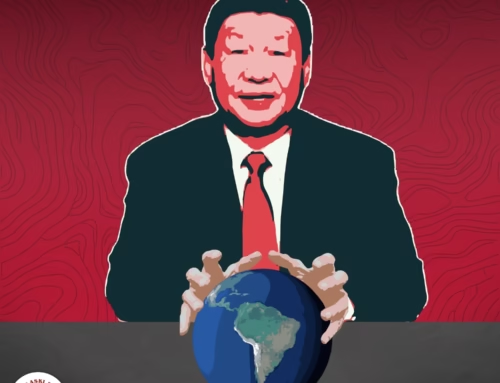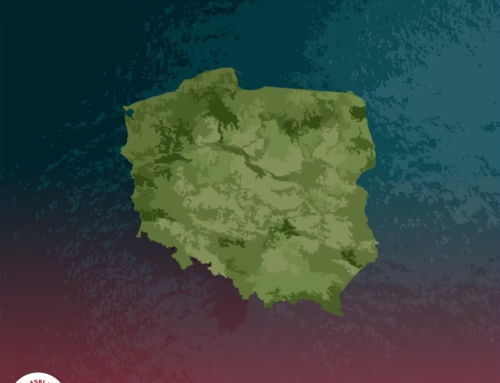Macron i Pavel
Autor foto: Associated Press News



Macron i Pavel
Autor foto: Associated Press News
CEE Weekly Update: Europe Steps Up, Filling the US Security Void
Autor: FKP
Opublikowano: 12 marca, 2024
Macron Steps up Rhetoric on War in Ukraine
During his visit to Prague, Macron stepped up attempts to spark a debate from his European counterparts on aiding Ukraine. While speaking to the French expat community in Czechia, Macron emphasised, ‘Europe clearly faces a moment when it will be necessary not to be cowards…[People] never want to see the tragedies that are coming.’[1] His ‘cowards’ comment has already sparked remarks from German and British officials, which devolved into further spats among the three countries. Simultaneously, Macron has received support from Poland’s Foreign Minister Radek Sikorski, who added that NATO boots on the ground is ‘not unthinkable.’[2] Putin has been betting on Western divisions to help him win more ground politically and militarily, but France’s resolve demonstrates that support for Ukraine remains a military priority in Europe.[3]
Macron’s impetus for more European resolve and his creation of ambiguity in Europe’s willingness to militarily respond to Russia’s aggression come at a critical moment in the war. While two years worth of 16,500 sanctions have been targeting the country, Russia has circumvented many through third-party states—growing its GDP by 2.2% in 2023. Moreover, Russia’s energy exports keep the economy afloat. Russia is one of the top energy producers globally; it is also currently the largest hydrocarbon supplier to China, which is the world’s largest consumer of hydrocarbons.[4] Russia’s GDP remains high, ranking eighth in the world, according to the World Bank.[5] Additionally, Putin has already set Russia’s defence spending goal to 7% of its GDP (an estimated USD 140 billion).[6] Moreover, Russia is currently on track to produce approximately three times more artillery munitions than the US and Europe, which will give it an advantage in its expected offensive in Ukraine.[7] Finally, the election in Russia this week may lead to a more emboldened Putin, bolstered by electoral support, on the battlefield.[8]
During an interview, Macron reflected on his speech, stating that it was ‘necessary to shake up France’s allies.’[9] The French president added that being ‘passive’ could lead to ‘suffering setbacks on the field, suffering possible disappointments in the U.S.’[10] Although the French president received backlash from some European leaders, Polish Foreign Minister Sikorski supported his initiative, stating that ‘it is about Putin being afraid, not us being afraid of Putin.’[11] As the US’s commitment to European security hangs in the balance— with no Ukraine aid bill passing Congress and a 2024 election on the horizon— NATO’s European flank should be strategizing for a collective, European-led security strategy. Macron’s comments create a battlefield of ambiguity, warning Putin to tread carefully in his expected offensive later this year. By blurring NATO’s red lines, Macron is filling the military void the US exposed through its Congressional gridlock, making escalation unfavourable for Putin.
Czechia Acquires Ammunition for Ukraine Globally
During President Macron’s visit to Prague, he and Czech President Petr Pavel reinforced their support for Ukraine, taking tangible steps to boost Ukraine’s position on the battlefield. Currently, Russia is firing about 10 times more ammunition than Ukraine as both sides are using cannon fire to maintain their entrenched positions on the front line.[12] According to war analysts, for Ukraine to maintain its defence posture, it would need 75,000-90,000 artillery shells per month, and to launch a “major offensive,” Kyiv needs about 250,000 shells per month.[13] Czechia has been taking proactive steps to fill this gap with a new initiative purchasing ammunition outside the EU.
To boost Ukraine’s weakened position, in February, Czech President Pavel announced that Czechia would purchase 500,000 155 mm and 300,000 122 mm calibre artillery shells for Ukraine.[14] A senior Czech official has said that approximately “2 million large calibre ammunition rounds are available on the global market.”[15] The Czech initiative is a way to tap into this market, reaching outside the EU for weaponry. So far, 18 countries, including France and Germany, have signed on to contribute to the campaign.[16] Last Tuesday, Macron pledged to participate in the initiative, allowing the use of European funds to finance it.[17] Macron remarked that Europe cannot constrain its support while Russia shows no limits, including nuclear threats in Putin’s rhetoric.[18] Macron added that France is ‘totally open’ to Czechia’s initiative to buy non-EU arms.[19] France’s involvement marks a changed policy, as Paris had previously resisted the use of EU funds to buy ammunition outside the Union, arguing that the investments should stay internal.[20] Macron’s latest commitment signals a strong pivot to strengthening Ukraine’s position on the frontlines ahead of a potential Russian offensive later this year.
Poland’s Sejm Votes to Suspend Conventional Armed Forces in Europe Treaty
Last week, the Polish parliament’s lower house, Sejm, overwhelmingly voted to suspend Poland’s participation in the Treaty on Conventional Armed Forces in Europe (CFE).[21] The decision to halt its participation will enable Poland to expand its military capabilities and relieve it of the obligation to annually report the status of its armed forces openly to other signatories. This vote is part of NATO’s broader process of withdrawal from the Treaty, which follows Russia’s official exit from the agreement last year.
On November 7, 2023, Russia left the CFE Treaty. Moscow cited US military expansion eastward as the reason, claiming that NATO’s reach had undermined post-Cold War security.[22] However, Moscow had actually suspended its participation in the CFE Treaty 17 years ago (in 2007), then halted its active participation in 2015, and denounced the pact in May of 2023 before officially leaving the Treaty five months later. Moscow announced that Finland’s admission and Sweden’s application to NATO in 2022 had effectively killed the CFE Treaty and prompted Russia’s exit.
The Treaty, signed in 1990, was aimed at restricting the military equipment that NATO and the former Warsaw Pact could deploy. The purpose was to limit the potential for military aggression between the Soviet Union and Europe by preventing either side from launching a quick offensive against the other. A limit on armaments and the exchange of information regarding each countries’ armed forces capabilities was supposed to be a means to reducing surprise attacks. However, as Europe shifts into a new world order, where the drive for peace no longer defines policy, countries are shifting away from transparency and safeguards, opting instead for uncertainty and rearmament.
Author: CPF team, edited by Jessica Maksimov, Visiting Fellow, Casimir Pulaski Foundation
[1] Clea Caulcutt, “Macron’s ‘cowards’ remark ignites Franco-German spat,” POLITICO, March 5, 2024, https://www.politico.eu/article/macron-urges-europe-not-to-be-cowards-on-ukraine/.
[2] Vanesa Gera, “Poland’s foreign minister says the presence of NATO troops in Ukraine is ‘not unthinkable,’” AP News, March 9, 2024, https://apnews.com/article/poland-nato-russia-france-abd144aee256a72388c196dae8acaf7f.
[3] Angela Stent, Jo Inge Bekkevold, Kristi Raik, Anders Fogh Rasmussen, Agathe Demarais, Franz-Stefan Gady, David Petraeus, C. Raja Mohan, and Stefan Theil, “Two Years On, What’s Next in Ukraine?” Foreign Policy, February 19, 2024, https://foreignpolicy.com/2024/02/19/ukraine-russia-war-two-years-anniversary-news-zelensky-putin/; Lee Hockstader, “Europe bickers while the Russian threat grows,” The Washington Post, March 11, 2024, https://www.washingtonpost.com/opinions/2024/03/11/russia-threatens-europe-infighting/.
[4] Mikhail Korostikov, “Will Climate Change Drive a Wedge Between Russia and China?” Carnegie Endowment for International Peace, December 20, 2023, https://carnegieendowment.org/politika/91301.
[5] Mary Glantz, “Ukraine War Takes a Toll on Russia,” US Institute of Peace, March 11, 2024, https://www.usip.org/publications/2024/03/ukraine-war-takes-toll-russia; The World Bank, “Data Catalog: GDP Ranking,” WorldBank.org, Dec 21, 2023, https://datacatalog.worldbank.org/search/dataset/0038130.
[6] Stockholm International Peace Research Institute, “Russia’s new budget law signals determination to see the war in Ukraine through, according to new SIPRI analysis,” SIPRI, December 13, 2023, https://www.sipri.org/media/press-release/2023/russias-new-budget-law-signals-determination-see-war-ukraine-through-according-new-sipri-analysis.
[7] “Exclusive: Russia producing three times more artillery shells than US and Europe for Ukraine,” CNN, March 11, 2024, https://edition.cnn.com/2024/03/10/politics/russia-artillery-shell-production-us-europe-ukraine/index.html.
[8] Thomas Graham, “Why Russia’s Election Matters to Putin,” Council on Foreign Relations, March 7, 2024, https://www.cfr.org/expert-brief/why-russias-election-matters-putin.
[9] Ibid.
[10] Ibid.
[11] Vanesa Gera, “Poland’s foreign minister says the presence of NATO troops in Ukraine is ‘not unthinkable,’” AP News, March 9, 2024, https://apnews.com/article/poland-nato-russia-france-abd144aee256a72388c196dae8acaf7f.
[12] Veronika Melkozerova, “Czechs raise funds to buy 800,000 artillery shells for Ukraine,” POLITICO, March 7, 2024, https://www.politico.eu/article/czechia-crowdfunds-enough-money-in-eu-and-beyond-to-buy-800000-artillery-shells-for-ukraine/; Anthony Deutsch and Jan Lopatka, “Inside Europe’s drive to get ammunition to Ukraine as Russia advances,” Reuters, March 6, 2024, https://www.reuters.com/world/europe/inside-europes-drive-get-ammunition-ukraine-russia-advances-2024-03-06/.
[13] Anthony Deutsch and Jan Lopatka, “Inside Europe’s drive to get ammunition to Ukraine as Russia advances,” Reuters, March 6, 2024, https://www.reuters.com/world/europe/inside-europes-drive-get-ammunition-ukraine-russia-advances-2024-03-06/.
[14]Veronika Melkozerova, “Czechs raise funds to buy 800,000 artillery shells for Ukraine,” POLITICO, March 7, 2024, https://www.politico.eu/article/czechia-crowdfunds-enough-money-in-eu-and-beyond-to-buy-800000-artillery-shells-for-ukraine/.
[15]Anthony Deutsch and Jan Lopatka, “Inside Europe’s drive to get ammunition to Ukraine as Russia advances,” Reuters, March 6, 2024, https://www.reuters.com/world/europe/inside-europes-drive-get-ammunition-ukraine-russia-advances-2024-03-06/.
[16] Ibid.
[17]Anthony Deutsch and Jan Lopatka, “Inside Europe’s drive to get ammunition to Ukraine as Russia advances,” Reuters, March 6, 2024, https://www.reuters.com/world/europe/inside-europes-drive-get-ammunition-ukraine-russia-advances-2024-03-06/.
[18] Karel Janicek, “Czech and French leaders pledge support for Ukraine while looking for ways to help war-torn country,” AP News, March 5, 2024, https://apnews.com/article/czech-france-ukraine-pavel-macron-b406a2450e3bc8fd2ae1db2a016d8a92.
[19] Ania Nussbaum, Samy Adghirni, and Peter Laca, “Europe Looks Abroad to Get Ukraine Weapons With Russia Advancing,” Bloomberg, February 27, 2024, https://www.bloomberg.com/news/articles/2024-02-26/france-and-netherlands-back-plan-to-buy-non-eu-ammo-for-ukraine.
[20] Ibid.
[21] Agata Pyka, “Poland votes to suspend participation in Treaty on Conventional Armed Forces in Europe,” Notes From Poland, March 8, 2024, https://notesfrompoland.com/2024/03/08/poland-votes-to-suspend-participation-in-treaty-on-conventional-armed-forces-in-europe/.
[22] Guy Faulconbridge and Lidia Kelly, “Russia formally withdraws from key post-Cold War European armed forces treaty,” Reuters, November 7, 2023, https://www.reuters.com/world/europe/russia-formally-withdraws-key-post-cold-war-european-armed-forces-treaty-2023-11-07/.






